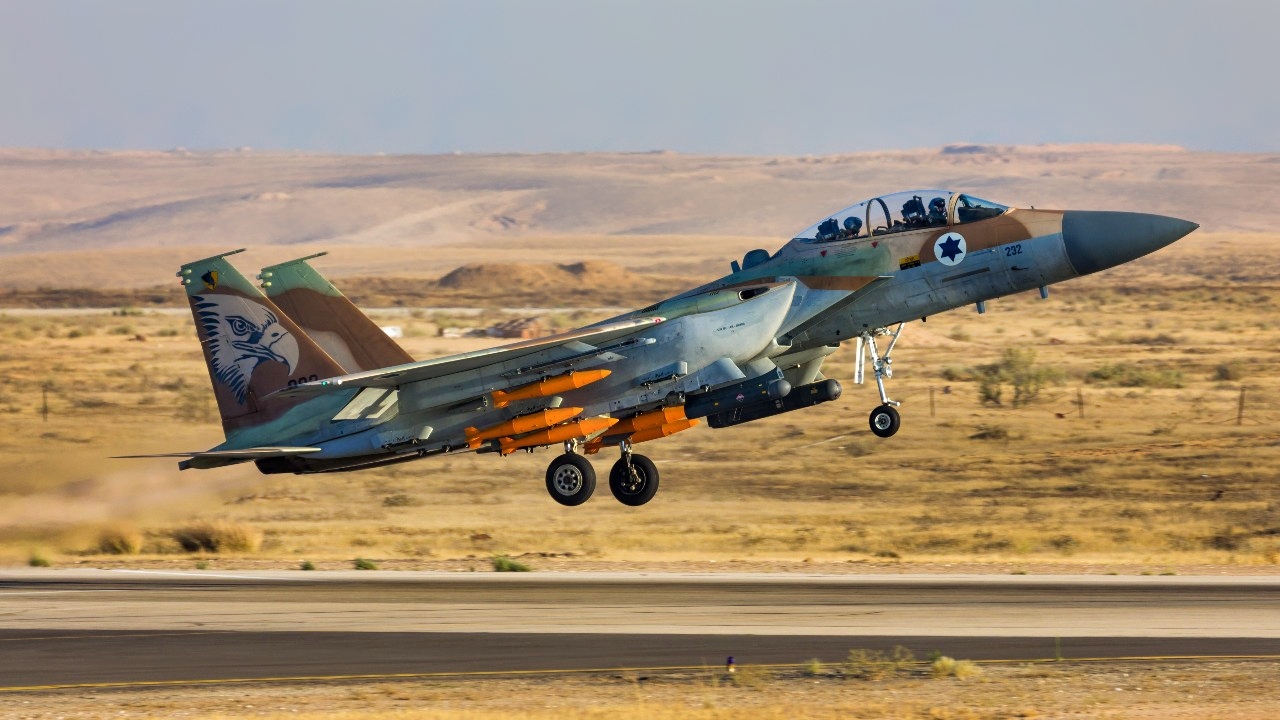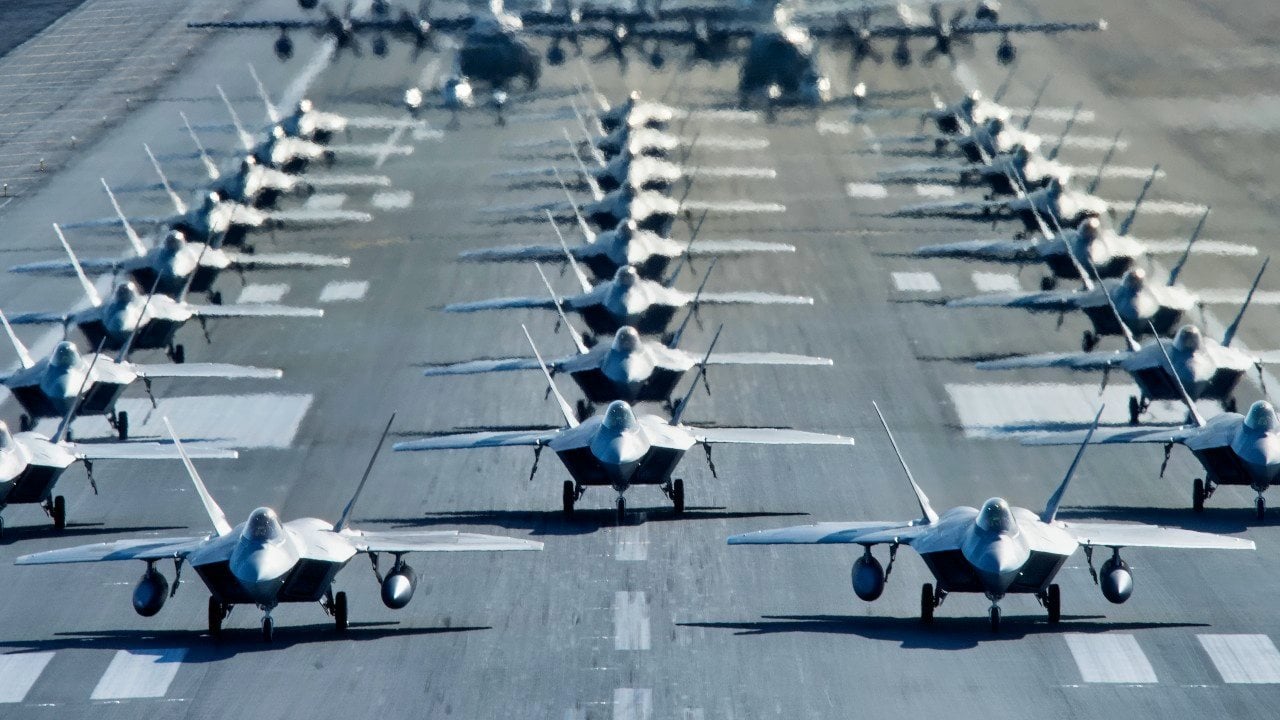Iran’s Missile Barrage Fails Again: How Will Israel Respond?
What should the United States and Israel do? And the answer is straightforward: Hit them hard, take out access to their nuclear sites, take out their allies in Yemen, take out their allies in Iraq, and then take a breath, and ask the leadership of the Islamic Republic if it would like to stand down.
On October 1, the Islamic Republic of Iran launched a barrage of 181 ballistic missiles against the State of Israel -- retaliation, the government said, for the killing of Hezbollah leader Hassan Nasrallah the week before. And like its previous attack in April of 2024, the onslaught failed to leave a mark on the Jewish state, killing only one person, a Palestinian in the wrong place at the wrong time.
Israel has vowed to retaliate against Iran for the attack, as it did in April. Both the nature of that retaliation and its timing remain unclear at this writing, but, per New York Times reporting, “the Iranian miliary has also prepared hundreds of missiles to launch from western borders should Israel or its top ally, the United States, strike back, two members of the Revolutionary Guards familiar with the planning said. ‘If the Zionist regime reacts to Iran’s operation it will face more fierce attacks,” said the Revolutionary Guards said in a statement.’”

Bluster from Tehran is nothing new, and the Islamic Republic has continued to rack up humiliation after humiliation at the hands of the Israelis, including the elimination of senior Revolutionary Guard figures in Damascus, the assassination in Tehran of Hamas leader Ismail Haniyeh, and the recent wave of Israeli attacks that annihilated Hezbollah’s top ranks. Israel’s ongoing mopping-up operation inside Lebanon promises more such casualties for Iran’s most important proxy.
What Is Iran Thinking?
So what is the calculus in Iran? Clearly, Supreme Leader Ayatollah Ali Khamenei doesn’t believe he is risking the United States’ ire, notwithstanding warnings from “senior administration officials” that “a direct military attack from Iran against Israel will carry severe consequences for Iran.” Similar warnings in the past have produced little more than wagging fingers and mild sanctions, and the Iranians rightly judge the fading Biden administration unlikely to launch a major assault on Iran in the midst of election season. But what of the risk from Israel?
As in the previous instance of a direct Iranian attack on Israel, the Biden administration raced a carrier strike group to the region and assisted in the interception of missiles headed for Israel. At the same time, however, the White House hoped that assistance would be repaid with restraint, warning Israel not to respond to Iran’s provocations. Israel responded to those warnings in April with a small, targeted attack on key nuclear defenses. But increasingly, Israel is turning deaf ears to Washington’s repeated requests to hold back, correctly judging the White House to be more interested in its own political fortunes, and less in Israel’s security.
So, is now the moment that Israel hits Iran with all it can? Iran’s leaders see that as unlikely. Israel is fighting in Gaza – where its hostages still languish – and in Lebanon. On first blush, it seems unlikely Jerusalem will want to do more than teach Khamenei a sharp lesson.
All these factors shape the Supreme Leader’s calculus about the risks and rewards of this latest direct attack on Israel. There has been unhappy grumbling with Iran’s failure to respond to the Haniyeh assassination, but Iran’s new president has a readymade excuse that may offer a clue about Iran’s internal debates: While so-called “hardliners” in the government firmament have criticized the lack of Iranian retaliation as “treason,” Iran’s new President Masoud Pezeshkian has positioned himself as a man of peace, willing to sheath his formidable arsenal if only to secure a future for his beloved Palestinians. In the Iranian good cop-bad cop narrative, therefore, Pezeshkian had to be talked around by his boss, Khamenei, before he could agree to unleashing the missiles.
This narrative is little more than a fairy tale designed to appeal to the growing antisemitic, pro-Hamas, pro-Hezbollah constituencies in minor European states, on the far left of the Democratic Party, at the United Nations, and on elite college campuses. During Pezeshkian’s short tenure, Iran’s proxies in Iraq, Yemen, Lebanon, and Gaza have continued their predations apace without any view to peace in our time.

The more pedestrian truth is that Iran’s insistence of farming out anti-Israel attacks to its proxies was beginning to look like weakness. And while such weakness can masquerade as restraint for a brief period, at a certain moment it begins to take its toll on the power of the regime. And it is the security of the regime that is paramount.
Finally, though Iran’s hopes of refuting claims of weakness have resulted only in confirmation, the question arises: What should the United States and Israel do? And the answer is straightforward: Hit them hard, take out access to their nuclear sites, take out their allies in Yemen, take out their allies in Iraq, and then take a breath, and ask the leadership of the Islamic Republic if it would like to stand down.
About the Author
Danielle Pletka is a distinguished senior fellow at the American Enterprise Institute and the host, with Marc Thiessen, of the podcast What the Hell is Going On? and the related Substack.
All images are Creative Commons.


